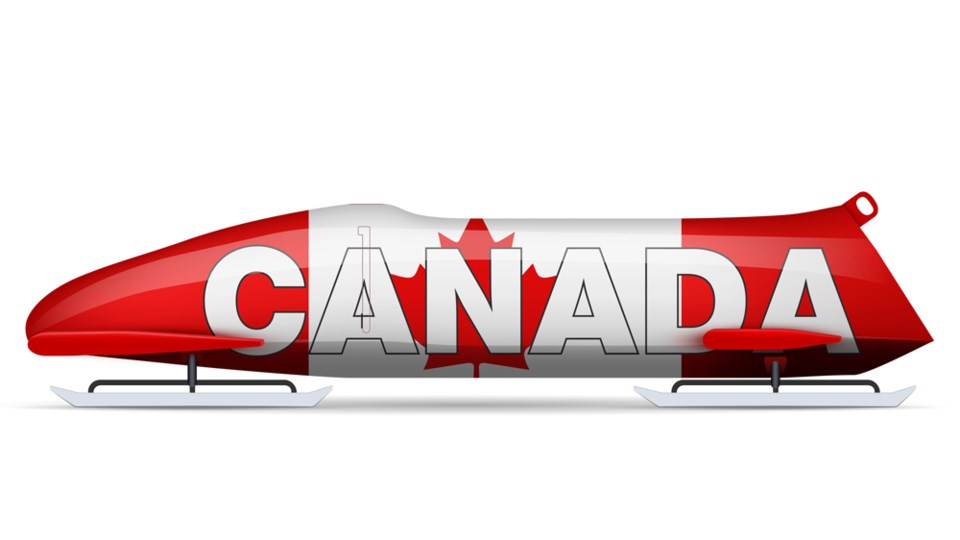Dozens of current and former Canadian bobsled and skeleton athletes are calling for the immediate resignation of the president and high performance director of Bobsleigh Canada Skeleton, citing toxic culture, lack of care for athlete safety and poor transparency and governance.
“In the two quadrennials leading up to the 2022 Olympics, systemic issues within BCS have adversely impacted both the sports of bobsleigh and skeleton and have become increasingly problematic over time,” said the letter, signed generically from 60+ Bobsleigh Canada Skeleton Athletes Past & Present (2014-2022). “Too many athletes have suffered physically, mentally, emotionally and financially due to the organization’s failure to address these issues, jeopardizing the future of both sports.”
President Sarah Storey is the daughter of former world bobsled federation CEO Bob Storey. The Ottawa lawyer’s resignation, the letter said, would enable BCS to become “a safe, supportive, functional, athlete-centric model from which to build future World and Olympic Champions.” High performance director Chris Le Bihan was on Canada’s bronze medal four-man bobsled team at Vancouver 2010.
The letter comes two weeks after the 21-member Team Canada left Beijing with only two bronze medals. Meanwhile, bobsledder Kaillie Humphries, who won two Olympic golds and a bronze for Canada, won gold in her first Olympics with the United States in the new monobob event. Humphries left BCS in 2019, citing a coach’s verbal and mental abuse.
The letter did not mention Humphries by name, but did emphasize a history of mishandled abuse, harassment and misconduct complaints.
“In general investigations have been undertaken to resolve these complaints, however athletes are concerned with the timeliness, priority and process by which these issues have been addressed,” the letter said.
The athletes took issue with the lack of skeleton coach at their three-week Olympic test event on the new Beijing 2022 track in October. The letter also said BCS lacks transparency and timely communication, which has created “an environment of deep mistrust.”
It said that BCS blames lack of funding for the systemic problems, but the athletes allege “gross mismanagement, poor planning, inefficiency, and cronyism.” BCS, they say, “should not be able to hide behind the lack of funding as justification for the environment and culture that it has created.”
After the Games were over, skeleton’s Mirela Rahneva Tweeted that it cost her $26,585 during the Olympic year, but only receives $14,120 in payments from Sport Canada. “How are Canadian athletes suppose (sic) to make this work?”
On the fourth point, governance, the athletes say BCS’s complicated policies and practices ignore best practices and athlete feedback.
BCS has not immediately responded for comment.
Canada won gold, silver and bronze in bobsledding and a gold in skeleton at Vancouver 2010, a gold in bobsledding at Sochi 2014, and gold and bronze in bobsledding at PyeongChang 2018.




